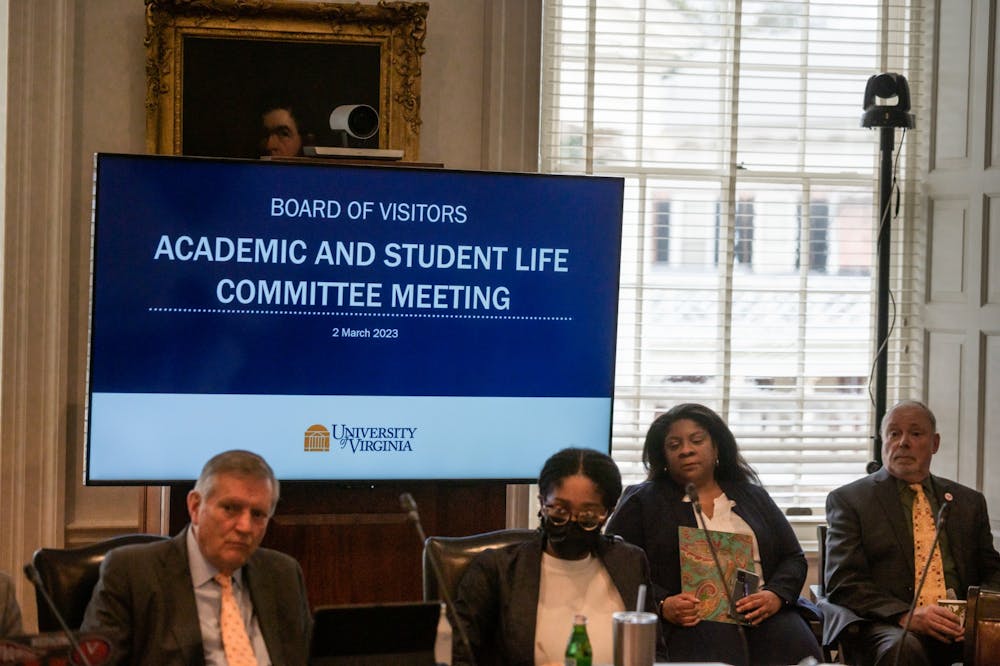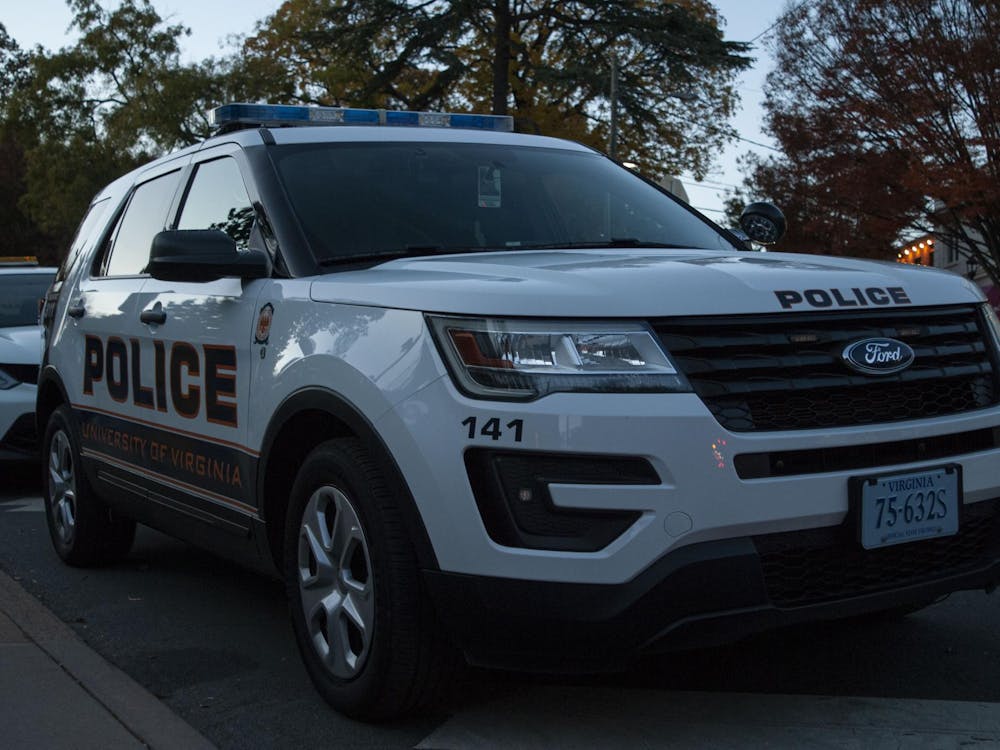The Board of Visitors’ Academic and Student Life Committee approved the creation of a Bachelor of Science in Data Science degree and confirmed target enrollment statistics for the next seven years. The Committee also commended the Honor Committee for Thursday's passage of the multi-sanction constitution and work to determine the role of artificial intelligence software in learning.
The Committee voted unanimously in favor of the University’s plan to offer a new undergraduate degree in the School of Data Science, a three-year, 120-credit program — including 41 credits of general education requirements, 40 credits of core coursework and nine credits in a specific concentration within the School.
Provost and Executive Vice President Ian Baucom said that the program will highlight the four main domains of data science — data value, data design, data analytics and data systems.
“This program is designed to respond to high demand from students and employers for a robust data science program,” Baucom said.
The Committee introduced recommendations for the University’s future enrollment projections for the next seven years, which public institutions are required to publish under Virginia state law. The University projects that total admission will increase between undergraduate and graduate schools by 4 percent — or 192 students — by 2029.
Baucom said one goal of the increased projection was to enlarge the new undergraduate data science major — which would include around 150 students.
“The primary reason why we’re bringing this recommendation is because we want to ensure that we actually have students to enroll in the School of Data Science,” Baucom said.
The projected increase comes even after the University over-enrolled first-year students for the Class of 2026, with a class size of over 4,000 students. Baucom said that the administration was able to handle the increase, and has tested dining and housing services this past year and seen that they can still support larger class sizes. The new goal for the first-year class size — while 192 students larger than the previous goal — still falls short of the size of the Class of 2026.
“If questions are raised about this, you can point to the fact this is our actual steady state,” Baucom said. “And if anything, we are saying we're asking for a projection to reflect our current reality and slightly less than our current reality.”
In addition to discussing enrollment, the results of the student body election were provided to the Board during the meeting — including news that the Honor Committee’s multi-sanction constitution had passed. The passage marks the first time that a multi-sanction system will govern the Honor System since the Committee’s inception in 1842.
Lily Roberts, student member of the Board and fourth-year Architecture student, said that the changes made to the Honor constitution are crucial to self-governance at the University and expressed her appreciation for the Committee’s efforts.
“I want to commend the full [Honor] committee on the manner with which they took this all very seriously and considered the education and the reinvigoration of our community of trust, especially after the pandemic,” Roberts said.
In addition to the passage of the Constitution, the Board moved to discuss clarifying the University’s policies surrounding generative AI — including ChatGPT – whose role in education remains controversial.
Baucom said that the University is currently assembling a task force to investigate this new technology as it relates to academic life, and will have an action plan by the end of the semester. Another priority is considering the effect of generative AI on the University’s research projects, which will be investigated by another group.
“The world is changing fast, as you know, and some of us are experimenting with ChatGPT,” Baucom said. “it’s changing the way in which we teach, it’s changing the way in which students learn.”
The Board will meet again in June.







